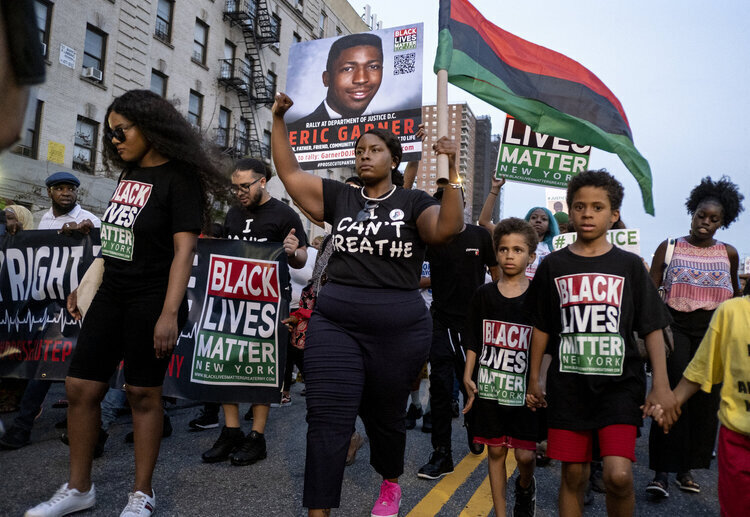Inquiry into Garner’s death will move forward, court rules
/The Appellate Division, First Department denied the city’s appeal to stop a judicial inquiry into Eric Garner’s death and the investigation that followed. AP file photo by Craig Ruttle
By Rachel Vick
The Appellate Division, First Department unanimously denied the city’s appeal to stop a judicial inquiry into Eric Garner’s 2014 death on Thursday.
Gwen Carr et al. v. Bill de Blasio et al., is a City Charter sanctioned review of the transparency of the investigation into the incident, which the city argued is unnecessary. The inquiry aims to bring to light the actions of city officials and other NYPD officers – beyond former officer Daniel Pantaleo – involved in Garner’s murder.
“We find that this is the rare case in which allegations of significant violations of duty, coupled with a serious lack of substantial investigation and public explanation, warrant a summary inquiry to bring transparency to a matter of profound public importance: the death of an unarmed civilian during the course of an arrest,” the opinion by Justice Anil Singh reads.
Justices Dianne Renwick, Cynthia Kern, Peter Moulton and Singh all agreed with the request for inquiry filed in part by Gwen Carr, Garner’s mother.
Carr said that the court’s decision affirms their efforts but that no parent “should have to fight for 7 years for basic answers and accountability.”
“New Yorkers deserve answers about the neglect and violation of duties of the de Blasio administration related to the murder of my son, refusal to fire other officers responsible for misconduct, and the related cover-up," Carr said. "It's good that the court denied the City's appeal but it's outrageous that I've had to fight for 7 years while the City has protected officers.”
She and the other petitioners argued that “numerous significant unresolved issues remained” in regard to potential violations of duty in the aftermath of Garner’s death, including the lack of investigation or punishment for other officers involved — like Justin Damico, who allegedly filed a report that said no force was used during the arrest.
When the inquiry was first granted, the Supreme Court ruled that “the alleged violations and/or neglect of duty have not been acknowledged by respondents and there is no indication that any governmental agencies are investigating the actions of any police officers other than Officer Pantaleo.”
The inquiry is currently scheduled to begin on Oct. 25.
“We are pleased with the Appellate Division’s decision, which is a complete victory for Ms. Carr and the other Petitioners in this important case,” said co-counsels Alvin Bragg, Gideon Oliver, and Rachel Welt. “We hope the decision shows Mayor de Blasio and City officials how critical it is for the inquiry to go forward as scheduled and that they must stop delaying and impeding the inquiry by refusing to produce critical document discovery and witness testimony.”
“We will continue to litigate those discovery issues vigorously as we prepare for the inquiry,” they added.
On Monday, Justice Erika M. Edwards will discuss a brief submitted by the petitioners outlining the relevance of putting high-ranking city officials like Mayor Bill de Blasio on the stand after the two sides disagreed on what should be included in discovery and who would be called to testify.
Counsel from the city’s Law Department suggested that the request to put the mayor on the stand was an attempt to question him on unrelated decisions under oath and maintained that the amount of information uncovered in the media coverage that followed Garner’s murder.
“We don’t understand where they’re coming from,” said Stephen Kitzinger, senior counsel at the New York City Law Department during the discovery hearing.




